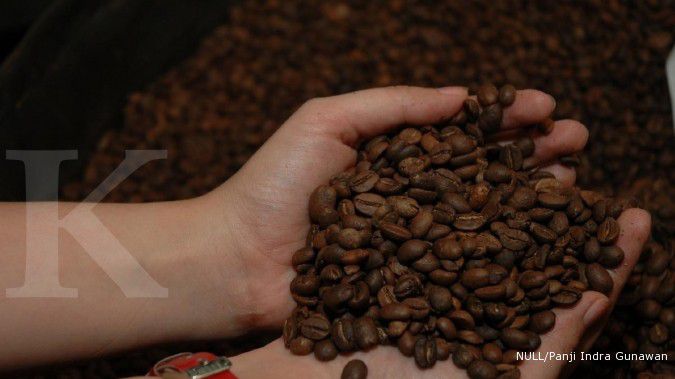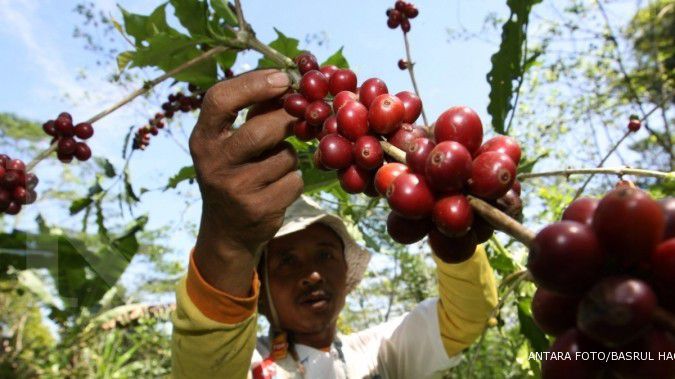LAMPUNG. Coffee farmers in Lampung have asked the central government to mediate talks with overseas coffee buyers following a rejection of Lampung coffee exports by the international market.
The United States and Japan have turned down coffee from Lampung claiming the Robusta beans contain high levels of carbaryl beyond their tolerable limits.
Carbaryl is a component of insecticides and is still found in Lampung coffee due to poor processing methods.
In the US, the legal limit for carbaryl in coffee is 0.01 parts per million (ppm). Indonesian coffee has a carbaryl content of 0.1 ppm, 10 times the legal limit. Major consumers in Europe, the US and Japan are equipped with high technology to measure the amounts of chemical substances in coffee. Farmers and processors in Indonesia are generally unfamiliar with methods to produce beans without exceeding the carbaryl limit for.
In March 2013, Lampung exported just over 14,000 tons of Robusta beans worth US$28 million, a substantial drop compared to the previous month of when almost 24,000 tons of beans worth $47 million went to market.
Robusta coffee exports from Lampung and other production centers will most likely drop drastically as the effects of the rejection by the international market kick in.
Farmer Paryoto of Gunungterang village in West Lampung said the refusal of coffee export would have a strongly negative impact on coffee farmers should the government fail to interfere.
“We have been cultivating our coffee farms in an eco-friendly manner for several years. We use organic fertilizer, but they still claim our product contains carbaryl, so we are at a loss as to what else we can do,” said Paryoto.
Farmers in Lampung took the initiative in 2008 to obtain certification for coffee exports, but often face challenges as the standards for certification vary from country to country and issuing institutions set different standards.
“The government must facilitate dialog. We don’t want to become victims of the international coffee trade. We are ready to prove that the coffee that we produce is environmentally-friendly,” said Paryoto, who has been invited to London at the end of April to talk about eco-friendly coffee cultivation in Indonesia.
Paryoto’s visit to London is part of the government’s efforts to convince international coffee buyers that coffee from Lampung is eco-friendly.
According to West Lampung Plantation Office head Agustanto, the regency is working hard to help all organic coffee farmers obtain whatever certificates they need to assure consumers that the product they are rejecting is genuine organic coffee.
He acknowledged that a small number of farmers use dishonest methods when drying their coffee beans, such as using chemicals to dry their coffee beans quickly, where in fact they must be dried in clean places in direct sunlight.
“Such methods are unethical and the number of farmers who resort to such measures is very small. The irresponsible farmers can be reprimanded by other members of the farming communities when they are caught,” said Agustanto.
Lampung chapter of the Indonesian Coffee Exporters Association (AEKI)’s Arbitrage and Legal Affairs head Azischan Satib acknowledged it was difficult to control Lampung coffee because the farms were mostly small operation.
(Oyos Saroso HN/The Jakarta Post)
/2011/08/08/438405828p.jpg)












